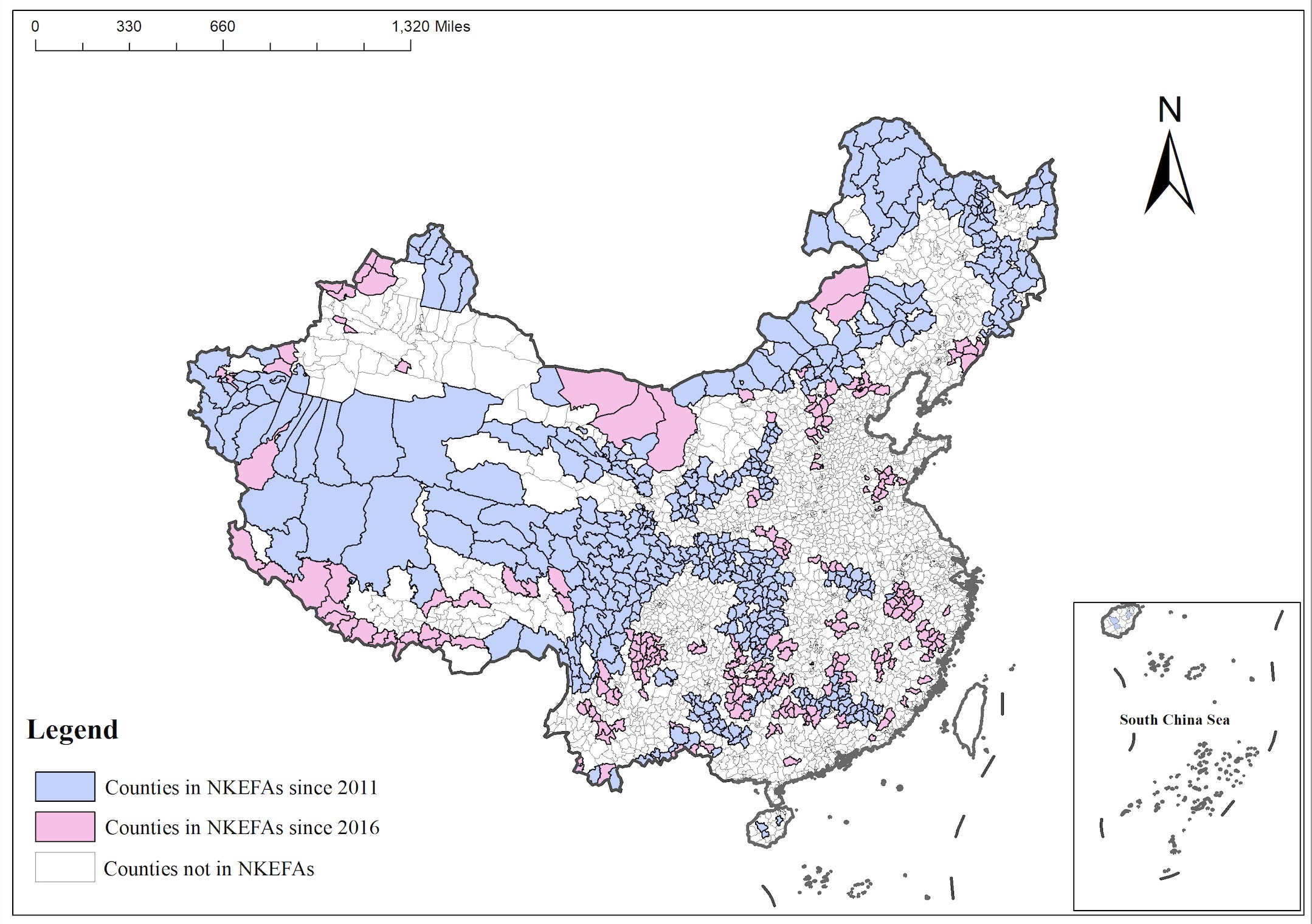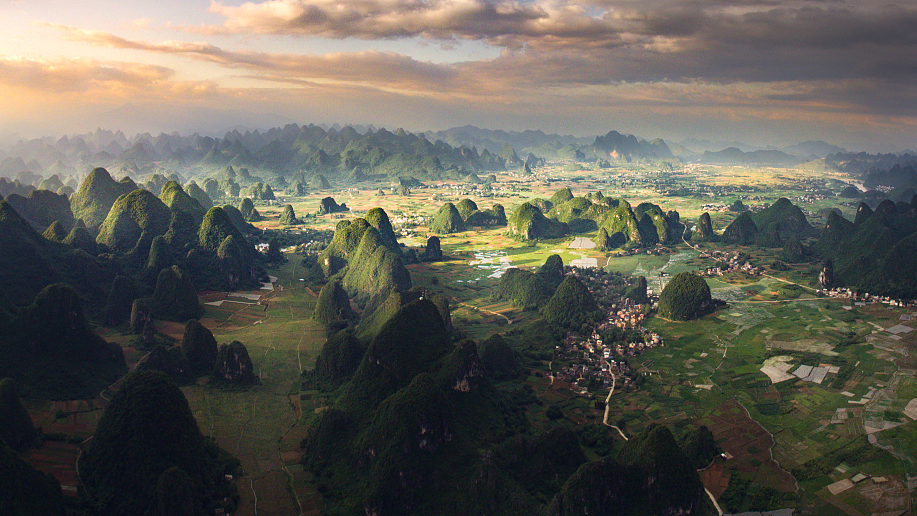
Editor's note: "Shared by Nature" invites experts and scholars from around the world to share their knowledge of major issues in nature, such as climate change, biodiversity conservation and environmental protection. How do China's nature reserves enhance health? Wang Mingzhe, a PhD candidate from Tsinghua University, talked to CGTN Nature.
On the ninth day of the ninth lunar month, people in China celebrate the traditional Double Ninth Festival, also known as the Chongyang Festival. The Double Ninth Festival was originally observed as a rite of worshiping the ancestors and deities to bless the harvest, and it has a rich history dating back more than 2,000 years to the Warring States period (206 BC–220 AD). The celebration now includes the symbolic meaning of honoring the elderly.
Among the world's population, middle-aged and elderly citizens are particularly vulnerable to health issues. According to a survey from the National Health Commission of China in 2019, only 28.55 percent of China's senior population had good mental health.
In order to address the physical and mental health of the elderly, the Chinese government issued the National Key Ecological Function Zones ("the Zones") in December 2010, encompassing 436 counties and covering an expanse of 3.86 million square kilometers.
A second batch of the Zones was designated in September 2016, including an additional 240 counties across the country. Currently, it covers 676 counties, accounting for 53 percent of China's total land area. These areas have crucial ecological responsibilities ranging from soil and water conservation to water resource management, desertification control and biodiversity preservation.

Chinese counties covered by the first and second batches of the Zones. /Provided by Wang Mingzhe
Chinese counties covered by the first and second batches of the Zones. /Provided by Wang Mingzhe
In research by Wang Mingzhe and his team published in the Social Science & Medicine journal, they examine how the Zone's policy affects the physical and mental health of middle-aged and elderly residents in China, based on a representative sample of nearly 130,000 individuals.
According to Wang, this effect is more noticeable for rural residents because they are facing difficulties like slower economic growth, inadequate social security systems and a shortage of healthcare resources. "In essence, the nature reserve strategy fosters a healthier living environment for rural middle-aged and elderly citizens, with the ability to reduce health inequities and provide the groundwork for their long-term well-being," Wang added.
It is noteworthy that the effectiveness of various types of ecosystems in improving physical health varies. "For example, ecological reserves situated in karst areas exhibit the most pronounced impact on the physical well-being of middle-aged and elderly residents. The majority of the karst areas are typical ecological transition zones, with a special ecosystem dominated by a lava environment and a high level of ecological vulnerability. The vulnerability of the karst environment itself, along with the repercussions of human activities, has led to its ongoing degradation. The establishment of protected areas in such ecologically delicate regions has notably contributed to the implementation of reforestation and ecological initiatives, water conservation projects and natural disaster prevention efforts in the area. In turn, this has contributed to preserving the ecological equilibrium of the region while promoting both ecological development and human health," Wang said.
Furthermore, ecological reserves as water conservation areas have great potential to improve the health of middle-aged and older people in the region. Wang explained that reducing soil erosion is a key component of water conservation initiatives, as it maintains ecosystem stability and lowers the probability of natural disasters. "The presence of clean water also lessens the likelihood of waterborne health risks, which enhances human health. To support the region's efforts to preserve water and soil, policymakers are urged to support the creation of natural reserves that prioritize water conservation," he added.
In Wang's study, they also researched the pivotal role of ecological reserves in nurturing mental well-being. "The creation of ecological reserves has a positive impact on the mental health of middle-aged and elderly residents, which reduces the level of depression. It's a powerful reminder that the benefits of eco-healing extend not only to the body but also to the mind," Wang said.

A karst area in Guilin, Guangxi Province, China. /VCG
A karst area in Guilin, Guangxi Province, China. /VCG
Creation of the Zones has resulted in great environmental success. Ecological quality counties of "Grade I" and "Grade II" account for over 60 percent of China's land area, with the majority of them being within the Zones. Every year, more than half of the counties within the Zones see an improvement in their environment, with more than 90 percent maintaining or improving their environmental quality. Furthermore, they help improving air quality, reduce industrial pollution and provide windbreak and sand fixation functions.
The establishment of the Zones signaled the constraints on industrial expansion. It imposed stricter industrial standards and required the closure or relocation of firms that cause environmental harm or pollution. In addition, the Chinese government has developed an assessment system aimed at evaluating local ecological quality and pollution management, thus strengthening the ecological and environmental oversight of the Zones. If they don't match the review standards, they could face harsh consequences, including less transfer payments and more local government accountability.
These initiatives highlight the critical relationship between nature and human health and serve as a model for long-term development that emphasizes both ecological and human well-being.
“In order to ensure that China's elderly have a better and happier future, we hope there are more and more innovative policies and strategies utilizing nature's healing powers to foster resilience and general health,” Wang added.
“As the world looks for solutions to deal with climate change and biodiversity loss, the Zones shine as guiding lights. As we continue to face the world's ever-changing challenges, the significance of nature reserves in improving health will become clearer, ensuring that future generations can benefit from nature's restorative and transformational qualities,” Wang said.
(If you have specific expertise and want to contribute, or if you have a topic of interest that you'd like to share with us, please email us at nature@cgtn.com.)